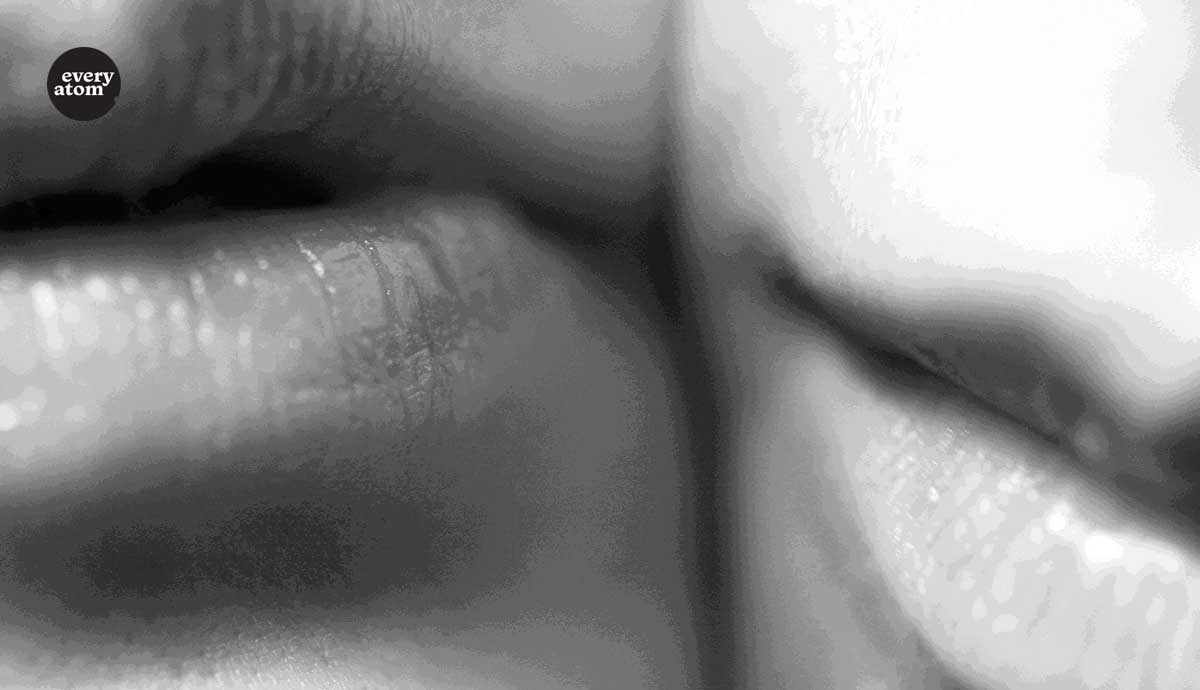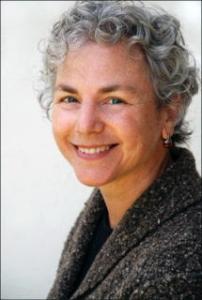Every Atom | No. 96
Introduction to Every Atom by project curator Brian Clements
On September 7, 1966, I sat in a creek in a forest in Vermont with the sun streaming down over me and over all the lush greenery of grass and trees. I was nineteen and on LSD. On the other shore, my friend, Beverly, sat on a boulder. I was in love with her though I’d never thought about it in those words—and wouldn’t be able to name that feeling until many years later. I had a boyfriend and was eager for sex with boys. Loving a woman had never crossed my mind. But Beverly fascinated me. She was an artist. She painted, she sculpted, and everything she touched became interesting, worthy of attention—a shell, a twist of driftwood, a feather, a fern with its neat pattern of spores. She wore mini skirts without underwear and lived on the Lower East Side of New York. When men hassled her on the street, she said, “Split, man,” and they did. I tried it and it worked for me too. Whatever part of love is wanting to be the beloved, I was drenched with it. And whatever part of love is wanting to be near the beloved, I was swimming in a sea of that too.
About this time I was reading Leaves of Grass and was immersed in Whitman’s expansive praise and hunger for every aspect of the living world—humans, animals, even the grass, especially the grass. I don’t think I knew that he was homosexual. I didn’t know that he was both expressing and hiding that in his poems. But even I couldn’t miss—or resist—his glorification of the body and all its marvels.
That day, Beverly and I each placed a tab of windowpane under our tongues and walked down a country road, discovering a secluded creek where we sat both apart and together. As I looked at her, her freckled cheekbones, her sun-dappled skin, her gaze focused somewhere off into the trees, I heard a Voice. This was the first and only time I’ve heard such a voice. It must have come from deep inside my own recesses, but it seemed to me to be the voice of God or the universe. Or maybe it was the voice of the creek or the air itself. Whatever its source, it spoke clearly: Nothing you could do could ever be wrong. I knew it signified Beverly and me, that there was no way I could touch her or be touched by her that would ever be wrong. That sex between us could never be wrong. The message was delivered as fact.
We didn’t make love that day. We tried it some years later and though it was delicious to be so close to her, we didn’t follow that path together. Instead our friendship just grew stronger. We have been best friends now for 53 years and I continue to adore and admire her.
It would be many years before I decided to be lovers with a woman. In my life, it was a decision. In the meantime I fell in love with several men, married one, divorced, and at the age of 35, came out as a lesbian. I said lesbian then. The term bi-sexual was misunderstood. Many people thought it meant you had to have two lovers. Others thought it was a cop-out for women who were afraid to admit they were lesbians. And since I was in a committed relationship with a woman (we’ve been together now for 36 years), it seemed simplest to identify as lesbian. But though I dearly hope to be with my wife until death and don’t expect to have other lovers, at my core I am omnisexual. As my daughter says so aptly, “It’s not about the bits.”
I feel fortunate that I have never questioned whether it was right, acceptable, moral, whatever, for me to make love with a woman. I have encountered homophobia in the world, but I am grateful that I have never felt it within myself. I owe that absolute certainly to the voice that spoke to me. Though the voice wasn’t as eloquent as this:
I believe in flesh and the appetites,
Seeing hearing and feeling are miracles, and each part and tag of me is a miracle.
Divine am I inside and out, and I make holy whatever I touch or am touched from;
Maybe the voice was Whitman.
Recommended
Nor’easter
Post-Op Appointment With My Father
Cedar Valley Youth Poet Laureate | Fall 2024 Workshop







